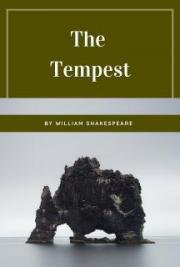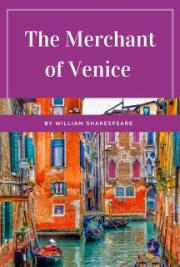BAPTISTA
I'll after him, and see the event of this.
[Exeunt BAPTISTA, GREMIO, and attendants]
TRANIO
But to her love concerneth us to add Her father's liking: which to bring to pass, As I before unparted to your worship, I am to get a man, -- whate'er he be, It skills not much. we'll fit him to our turn, --
And he shall be Vincentio of Pisa; And make assurance here in Padua
Of greater sums than I have promised.
So shall you quietly enjoy your hope, And marry sweet Bianca with consent.
LUCENTIO
Were it not that my fellow-school-master Doth watch Bianca's steps so narrowly,
'Twere good, methinks, to steal our marriage; Which once perform'd, let all the world say no, I'll keep mine own, despite of all the world.
TRANIO
That by degrees we mean to look into, And watch our vantage in this business: We'll over-reach the greybeard, Gremio, The narrow-prying father, Minola,
The quaint musician, amorous Licio; All for my master's sake, Lucentio.
[Re-enter GREMIO]
Signior Gremio, came you from the church?
GREMIO
As willingly as e'er I came from school.
TRANIO
And is the bride and bridegroom coming home?
GREMIO
A bridegroom say you? 'tis a groom indeed, A grumbling groom, and that the girl shall find.
TRANIO
Curster than she? why, 'tis impossible.
GREMIO
Why he's a devil, a devil, a very fiend.
TRANIO
Why, she's a devil, a devil, the devil's dam.
GREMIO
Tut, she's a lamb, a dove, a fool to him!
I'll tell you, Sir Lucentio: when the priest Should ask, if Katharina should be his wife,
'Ay, by gogs-wouns,' quoth he; and swore so loud, That, all-amazed, the priest let fall the book; And, as he stoop'd again to take it up, The mad-brain'd bridegroom took him such a cuff That down fell priest and book and book and priest:
'Now take them up,' quoth he, 'if any list.'
TRANIO
What said the wench when he rose again?
GREMIO
Trembled and shook; for why, he stamp'd and swore, As if the vicar meant to cozen him.
But after many ceremonies done,
He calls for wine: 'A health!' quoth he, as if He had been aboard, carousing to his mates After a storm; quaff'd off the muscadel And threw the sops all in the sexton's face; Having no other reason
But that his beard grew thin and hungerly And seem'd to ask him sops as he was drinking.
This done, he took the bride about the neck And kiss'd her lips with such a clamorous smack That at the parting all the church did echo: And I seeing this came thence for very shame; And after me, I know, the rout is coming.
Such a mad marriage never was before: Hark, hark! I hear the minstrels play.
[Music]
[Re-enter PETRUCHIO, KATHARINA, BIANCA, BAPTISTA, HORTENSIO, GRUMIO, and Train]
PETRUCHIO
Gentlemen and friends, I thank you for your pains: I know you think to dine with me to-day, And have prepared great store of wedding cheer; But so it is, my haste doth call me hence, And therefore here I mean to take my leave.
BAPTISTA
Is't possible you will away to-night?
PETRUCHIO
I must away to-day, before night come: Make it no wonder; if you knew my business, You would entreat me rather go than stay.
And, honest company, I thank you all, That have beheld me give away myself To this most patient, sweet and virtuous wife: Dine with my father, drink a health to me; For I must hence; and farewell to you all.
TRANIO
Let us entreat you stay till after dinner.
PETRUCHIO
It may not be.
GREMIO
Let me entreat you.
PETRUCHIO
It cannot be.
KATHARINA
Let me entreat you.
PETRUCHIO
I am content.
KATHARINA
Are you content to stay?
PETRUCHIO
I am content you shall entreat me stay; But yet not stay, entreat me how you can.
KATHARINA
Now, if you love me, stay.
PETRUCHIO
Grumio, my horse.
GRUMIO
Ay, sir, they be ready: the oats have eaten the horses.
KATHARINA
Nay, then,
Do what thou canst, I will not go to-day; No, nor to-morrow, not till I please myself.
The door is open, sir; there lies your way; You may be jogging whiles your boots are green; For me, I'll not be gone till I please myself:
'Tis like you'll prove a jolly surly groom, That take it on you at the first so roundly.
PETRUCHIO
O Kate, content thee; prithee, be not angry.
KATHARINA
I will be angry: what hast thou to do?
Father, be quiet; he shall stay my leisure.
GREMIO
Ay, marry, sir, now it begins to work.
KATARINA
Gentlemen, forward to the bridal dinner: I see a woman may be made a fool,
If she had not a spirit to resist.
PETRUCHIO
They shall go forward, Kate, at thy command.
Obey the bride, you that attend on her; Go to the feast, revel and domineer, Carouse full measure to her maidenhead, Be mad and merry, or go hang yourselves: But for my bonny Kate, she must with me.
Nay, look not big, nor stamp, nor stare, nor fret; I will be master of what is mine own: She is my goods, my chattels; she is my house, My household stuff, my field, my barn, My horse, my ox, my ass, my any thing; And here she stands, touch her whoever dare; I'll bring mine action on the proudest he That stops my way in Padua. Grumio, Draw forth thy weapon, we are beset with thieves; Rescue thy mistress, if thou be a man.
Fear not, sweet wench, they shall not touch thee, Kate:
I'll buckler thee against a million.
[Exeunt PETRUCHIO, KATHARINA, and GRUMIO]
BAPTISTA
Nay, let them go, a couple of quiet ones.
GREMIO
Went they not quickly, I should die with laughing.
TRANIO
Of all mad matches never was the like.
LUCENTIO
Mistress, what's your opinion of your sister?
BIANCA
That, being mad herself, she's madly mated.
GREMIO
I warrant him, Petruchio is Kated.
BAPTISTA
Neighbours and friends, though bride and bridegroom wants
For to supply the places at the table, You know there wants no junkets at the feast.
Lucentio, you shall supply the bridegroom's place: And let Bianca take her sister's room.
TRANIO
Shall sweet Bianca practise how to bride it?
BAPTISTA
She shall, Lucentio. Come, gentlemen, let's go.
[Exeunt]
--------------------------------------
Act 4
"scene" 1
Scene 1
[PETRUCHIO'S country house.]
[Enter GRUMIO]
GRUMIO
Fie, fie on all tired jades, on all mad masters, and all foul ways! Was ever man so beaten? was ever man so rayed? was ever man so weary? I am sent before to make a fire, and they are coming after to warm them. Now, were not I a little pot and soon hot, my very lips might freeze to my teeth, my tongue to the roof of my mouth, my heart in my belly, ere I should come by a fire to thaw me: but I, with blowing the fire, shall warm myself; for, considering the weather, a taller man than I will take cold. Holla, ho! Curtis.
[Enter CURTIS]
CURTIS
Who is that calls so coldly?
GRUMIO
A piece of ice: if thou doubt it, thou mayst slide from my shoulder to my heel with no greater a run but my head and my neck. A fire good Curtis.
CURTIS
Is my master and his wife coming, Grumio?
GRUMIO
O, ay, Curtis, ay: and therefore fire, fire; cast on no water.
CURTIS
Is she so hot a shrew as she's reported?
GRUMIO
She was, good Curtis, before this frost: but, thou knowest, winter tames man, woman and beast; for it hath tamed my old master and my new mistress and myself, fellow Curtis.
CURTIS
Away, you three-inch fool! I am no beast.
GRUMIO
Am I but three inches? why, thy horn is a foot; and so long am I at the least. But wilt thou make a fire, or shall I complain on thee to our mistress, whose hand, she being now at hand, thou shalt soon feel, to thy cold comfort, for being slow in thy hot office?
CURTIS
I prithee, good Grumio, tell me, how goes the world?
GRUMIO
A cold world, Curtis, in every office but thine; and therefore fire: do thy duty, and have thy duty; for my master and mistress are almost frozen to death.
CURTIS
There's fire ready; and therefore, good Grumio, the news.
GRUMIO
Why, 'Jack, boy! ho! boy!' and as much news as will thaw.
CURTIS
Come, you are so full of cony-catching!
GRUMIO
Why, therefore fire; for I have caught extreme cold.
Where's the cook? is supper ready, the house trimmed, rushes strewed, cobwebs swept; the serving-men in their new fustian, their white stockings, and every officer his wedding-garment on?
Be the jacks fair within, the jills fair without, the carpets laid, and every thing in order?
CURTIS
All ready; and therefore, I pray thee, news.
GRUMIO
First, know, my horse is tired; my master and mistress fallen out.
CURTIS
How?
GRUMIO
Out of their saddles into the dirt; and thereby hangs a tale.
CURTIS
Let's ha't, good Grumio.
GRUMIO
Lend thine ear.
CURTIS
Here.
GRUMIO
There.
[Strikes him]
CURTIS
This is to feel a tale, not to hear a tale.
GRUMIO
And therefore 'tis called a sensible tale: and this cuff was but to knock at your ear, and beseech listening. Now I begin: Imprimis, we came down a foul hill, my master riding behind my mistress, --
CURTIS
Both of one horse?
GRUMIO
What's that to thee?
CURTIS
Why, a horse.
GRUMIO
Tell thou the tale: but hadst thou not crossed me, thou shouldst have heard how her horse fell and she under her horse; thou shouldst have heard in how miry a place, how she was bemoiled, how he left her with the horse upon her, how he beat me because her horse stumbled, how she waded through the dirt to pluck him off me, how he swore, how she prayed, that never prayed before, how I cried, how the horses ran away, how her bridle was burst, how I lost my crupper, with many things of worthy memory, which now shall die in oblivion and thou return unexperienced to thy grave.
CURTIS
By this reckoning he is more shrew than she.
GRUMIO
Ay; and that thou and the proudest of you all shall find when he comes home. But what talk I of this?
Call forth Nathaniel, Joseph, Nicholas, Philip, Walter, Sugarsop and the rest: let their heads be sleekly combed their blue coats brushed and their garters of an indifferent knit: let them curtsy with their left legs and not presume to touch a hair of my master's horse-tail till they kiss their hands. Are they all ready?
CURTIS
They are.
GRUMIO
Call them forth.
CURTIS
Do you hear, ho? you must meet my master to countenance my mistress.
GRUMIO
Why, she hath a face of her own.
CURTIS
Who knows not that?
GRUMIO
Thou, it seems, that calls for company to countenance her.
CURTIS
I call them forth to credit her.
GRUMIO
Why, she comes to borrow nothing of them.
[Enter four or five Serving-men]
NATHANIEL
Welcome home, Grumio!
PHILIP
How now, Grumio!
JOSEPH
What, Grumio!
NICHOLAS
Fellow Grumio!
NATHANIEL
How now, old lad?
GRUMIO
Welcome, you; -- how now, you; -- what, you; -- fellow, you; -- and thus much for greeting. Now, my spruce companions, is all ready, and all things neat?
NATHANIEL
All things is ready. How near is our master?
GRUMIO
E'en at hand, alighted by this; and therefore be not -- Cock's passion, silence! I hear my master.
[Enter PETRUCHIO and KATHARINA]
PETRUCHIO
Where be these knaves? What, no man at door To hold my stirrup nor to take my horse!
Where is Nathaniel, Gregory, Philip?
ALL SERVING-MEN
Here, here, sir; here, sir.
PETRUCHIO
Here, sir! here, sir! here, sir! here, sir!
You logger-headed and unpolish'd grooms!
What, no attendance? no regard? no duty?
Where is the foolish knave I sent before?
GRUMIO
Here, sir; as foolish as I was before.
PETRUCHIO
You peasant swain! you whoreson malt-horse drudge!
Did I not bid thee meet me in the park, And bring along these rascal knaves with thee?
GRUMIO
Nathaniel's coat, sir, was not fully made, And Gabriel's pumps were all unpink'd i' the heel; There was no link to colour Peter's hat, And Walter's dagger was not come from sheathing: There were none fine but Adam, Ralph, and Gregory; The rest were ragged, old, and beggarly; Yet, as they are, here are they come to meet you.
PETRUCHIO
Go, rascals, go, and fetch my supper in.
[Exeunt Servants]
[Singing]
Where is the life that late I led --
Where are those -- Sit down, Kate, and welcome. --
Sound, sound, sound, sound!
[Re-enter Servants with supper]
Why, when, I say? Nay, good sweet Kate, be merry.
Off with my boots, you rogues! you villains, when?
[Sings]
It was the friar of orders grey,
As he forth walked on his way: --
Out, you rogue! you pluck my foot awry: Take that, and mend the plucking off the other.
[Strikes him]
Be merry, Kate. Some water, here; what, ho!
Where's my spaniel Troilus? Sirrah, get you hence, And bid my cousin Ferdinand come hither: One, Kate, that you must kiss, and be acquainted with.
Where are my slippers? Shall I have some water?
[Enter one with water]
Come, Kate, and wash, and welcome heartily.
You whoreson villain! will you let it fall?
[Strikes him]
KATHARINA
Patience, I pray you; 'twas a fault unwilling.
PETRUCHIO
A whoreson beetle-headed, flap-ear'd knave!
Come, Kate, sit down; I know you have a stomach.
Will you give thanks, sweet Kate; or else shall I?
What's this? mutton?
First Servant
Ay.
PETRUCHIO
Who brought it?
PETER
I.
PETRUCHIO
'Tis burnt; and so is all the meat.
What dogs are these! Where is the rascal cook?
How durst you, villains, bring it from the dresser, And serve it thus to me that love it not?
Theretake it to you, trenchers, cups, and all;
[Throws the meat, &c. about the stage]
You heedless joltheads and unmanner'd slaves!
What, do you grumble? I'll be with you straight.
KATHARINA
I pray you, husband, be not so disquiet: The meat was well, if you were so contented.
PETRUCHIO
I tell thee, Kate, 'twas burnt and dried away; And I expressly am forbid to touch it, For it engenders choler, planteth anger; And better 'twere that both of us did fast, Since, of ourselves, ourselves are choleric, Than feed it with such over-roasted flesh.
Be patient; to-morrow 't shall be mended, And, for this night, we'll fast for company: Come, I will bring thee to thy bridal chamber.
[Exeunt]
[Re-enter Servants severally]
NATHANIEL
Peter, didst ever see the like?
PETER
He kills her in her own humour.
[Re-enter CURTIS]
GRUMIO
Where is he?
CURTIS
In her chamber, making a sermon of continency to her; And rails, and swears, and rates, that she, poor soul, Knows not which way to stand, to look, to speak, And sits as one new-risen from a dream.
Away, away! for he is coming hither.
[Exeunt]
[Re-enter PETRUCHIO]
PETRUCHIO
Thus have I politicly begun my reign, And 'tis my hope to end successfully.
My falcon now is sharp and passing empty; And till she stoop she must not be full-gorged, For then she never looks upon her lure.
Another way I have to man my haggard, To make her come and know her keeper's call, That is, to watch her, as we watch these kites That bate and beat and will not be obedient.
She eat no meat to-day, nor none shall eat; Last night she slept not, nor to-night she shall not; As with the meat, some undeserved fault I'll find about the making of the bed; And here I'll fling the pillow, there the bolster, This way the coverlet, another way the sheets: Ay, and amid this hurly I intend
That all is done in reverend care of her; And in conclusion she shall watch all night: And if she chance to nod I'll rail and brawl And with the clamour keep her still awake.
This is a way to kill a wife with kindness; And thus I'll curb her mad and headstrong humour.
He that knows better how to tame a shrew, Now let him speak: 'tis charity to show.
[Exit]
--------------------------------------
"scene" 2
Scene 2
[Padua. Before BAPTISTA'S house.]
[Enter TRANIO and HORTENSIO]
TRANIO
Is't possible, friend Licio, that Mistress Bianca Doth fancy any other but Lucentio?
I tell you, sir, she bears me fair in hand.
HORTENSIO
Sir, to satisfy you in what I have said, Stand by and mark the manner of his teaching.
[Enter BIANCA and LUCENTIO]
LUCENTIO
Now, mistress, profit you in what you read?
BIANCA
What, master, read you? first resolve me that.
LUCENTIO
I read that I profess, the Art to Love.
BIANCA
And may you prove, sir, master of your art!
LUCENTIO
While you, sweet dear, prove mistress of my heart!
HORTENSIO
Quick proceeders, marry! Now, tell me, I pray, You that durst swear at your mistress Bianca Loved none in the world so well as Lucentio.
TRANIO
O despiteful love! unconstant womankind!
I tell thee, Licio, this is wonderful.
HORTENSIO
Mistake no more: I am not Licio,
Nor a musician, as I seem to be;
But one that scorn to live in this disguise, For such a one as leaves a gentleman, And makes a god of such a cullion: Know, sir, that I am call'd Hortensio.
TRANIO
Signior Hortensio, I have often heard Of your entire affection to Bianca; And since mine eyes are witness of her lightness, I will with you, if you be so contented, Forswear Bianca and her love for ever.
HORTENSIO
See, how they kiss and court! Signior Lucentio, Here is my hand, and here I firmly vow Never to woo her no more, but do forswear her, As one unworthy all the former favours That I have fondly flatter'd her withal.
TRANIO
And here I take the unfeigned oath, Never to marry with her though she would entreat: Fie on her! see, how beastly she doth court him!
HORTENSIO
Would all the world but he had quite forsworn!
For me, that I may surely keep mine oath, I will be married to a wealthy widow, Ere three days pass, which hath as long loved me As I have loved this proud disdainful haggard.
And so farewell, Signior Lucentio.
Kindness in women, not their beauteous looks, Shall win my love: and so I take my leave, In resolution as I swore before.
[Exit]
TRANIO
Mistress Bianca, bless you with such grace As 'longeth to a lover's blessed case!
Nay, I have ta'en you napping, gentle love, And have forsworn you with Hortensio.
BIANCA
Tranio, you jest: but have you both forsworn me?
TRANIO
Mistress, we have.
LUCENTIO
Then we are rid of Licio.
TRANIO
I' faith, he'll have a lusty widow now, That shall be wood and wedded in a day.
BIANCA
God give him joy!
TRANIO
Ay, and he'll tame her.
BIANCA
He says so, Tranio.
TRANIO
Faith, he is gone unto the taming-school.
BIANCA
The taming-school! what, is there such a place?
TRANIO
Ay, mistress, and Petruchio is the master; That teacheth tricks eleven and twenty long, To tame a shrew and charm her chattering tongue.
[Enter BIONDELLO]
BIONDELLO
O master, master, I have watch'd so long That I am dog-weary: but at last I spied An ancient angel coming down the hill, Will serve the turn.
TRANIO
What is he, Biondello?
BIONDELLO
Master, a mercatante, or a pedant, I know not what; but format in apparel, In gait and countenance surely like a father.
LUCENTIO
And what of him, Tranio?
TRANIO
If he be credulous and trust my tale, I'll make him glad to seem Vincentio, And give assurance to Baptista Minola, As if he were the right Vincentio
Take in your love, and then let me alone.
[Exeunt LUCENTIO and BIANCA]
[Enter a Pedant]
Pedant
God save you, sir!
TRANIO
And you, sir! you are welcome.
Travel you far on, or are you at the farthest?
Pedant
Sir, at the farthest for a week or two: But then up farther, and as for as Rome; And so to Tripoli, if God lend me life.
TRANIO
What countryman, I pray?
Pedant
Of Mantua.
TRANIO
Of Mantua, sir? marry, God forbid!
And come to Padua, careless of your life?
Pedant
My life, sir! how, I pray? for that goes hard.
TRANIO
'Tis death for any one in Mantua
To come to Padua. Know you not the cause?
Your ships are stay'd at Venice, and the duke, For private quarrel 'twixt your duke and him, Hath publish'd and proclaim'd it openly:
'Tis, marvel, but that you are but newly come, You might have heard it else proclaim'd about.
Pedant
Alas! sir, it is worse for me than so; For I have bills for money by exchange From Florence and must here deliver them.
TRANIO
Well, sir, to do you courtesy,
This will I do, and this I will advise you: First, tell me, have you ever been at Pisa?
Pedant
Ay, sir, in Pisa have I often been, Pisa renowned for grave citizens.
TRANIO
Among them know you one Vincentio?
Pedant
I know him not, but I have heard of him; A merchant of incomparable wealth.
TRANIO
He is my father, sir; and, sooth to say, In countenance somewhat doth resemble you.
BIONDELLO
[Aside]
As much as an apple doth an oyster, and all one.
TRANIO
To save your life in this extremity, This favour will I do you for his sake; And think it not the worst of an your fortunes That you are like to Sir Vincentio.
His name and credit shall you undertake, And in my house you shall be friendly lodged: Look that you take upon you as you should; You understand me, sir: so shall you stay Till you have done your business in the city: If this be courtesy, sir, accept of it.
Pedant
O sir, I do; and will repute you ever The patron of my life and liberty.
TRANIO
Then go with me to make the matter good.
This, by the way, I let you understand; my father is here look'd for every day, To pass assurance of a dower in marriage
'Twixt me and one Baptista's daughter here: In all these circumstances I'll instruct you: Go with me to clothe you as becomes you.
[Exeunt]
--------------------------------------
"scene" 3
Scene 3
[A room in PETRUCHIO'S house.]
[Enter KATHARINA and GRUMIO]
GRUMIO
No, no, forsooth; I dare not for my life.
KATHARINA
The more my wrong, the more his spite appears: What, did he marry me to famish me?
Beggars, that come unto my father's door, Upon entreaty have a present aims; If not, elsewhere they meet with charity: But I, who never knew how to entreat, Nor never needed that I should entreat, Am starved for meat, giddy for lack of sleep, With oath kept waking and with brawling fed: And that which spites me more than all these wants, He does it under name of perfect love; As who should say, if I should sleep or eat,
'Twere deadly sickness or else present death.
I prithee go and get me some repast; I care not what, so it be wholesome food.
GRUMIO
What say you to







